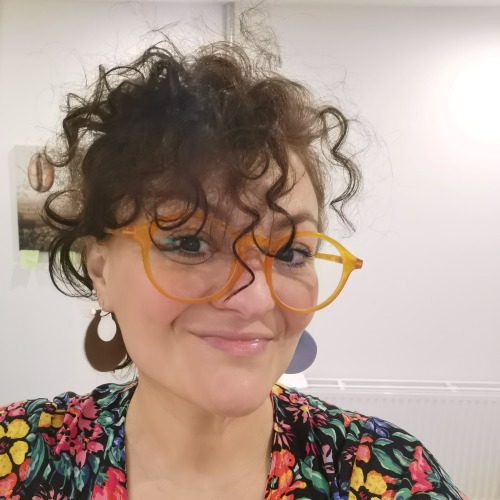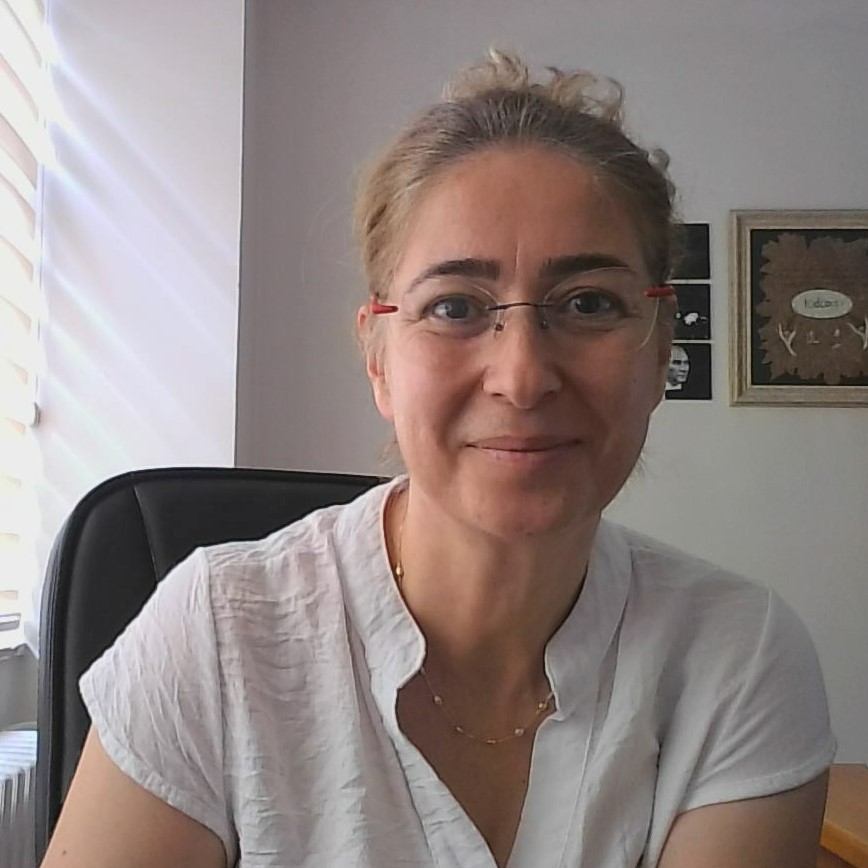Designing Feminist Research
Free 10-Week Online Seminar Fall 2023

Hosted on Zoom – Register for Link
Every Thursday, October 5 – December 14, 2023
9:30 – 11:00 AM EDT
Co-sponsored with the Gender and Sexualities Studies Institute (GSSI) at The New School.
Course Description: This 10-week seminar is designed for students who want to begin research within a feminist theoretical framework. While this course focuses on research techniques, it also hones in on the theoretical background of feminist research, including various epistemologies, critiques, and feminist standpoints.
Seminar Co-Leaders:


Dr. Aslı Kotaman
Dr. Aslı Kotaman is a researcher and professor of media and film studies with a particular interest in female agency, the feminist gaze, and the representation of women in cinema. In addition to her academic work, she is an active columnist and media critic with two books and numerous articles published. Dr. Kotaman holds a Ph.D. in Radio, Television, and Cinema from Marmara University, Turkey.
Dr. Pelin Yalçinoğlu
Dr. Pelin Yalçinoğlu has been teaching courses on science education, environmental education, philosophy and history of science, and qualitative research methods for over fifteen years. She also works on gender studies with a particular focus on education, science, and research. Dr. Yalçinoğlu holds a Ph.D. in Curriculum and Instruction, specializing in Science Education from The Ohio State University.
More Information:
Participants who attend at least 8 complete seminar sessions will receive a certificate of satisfactory completion from the Dean of The New School for Social Research. In order to obtain the certificate, participants must register and log in with the same email address each week.
Registration will remain open for the duration of the seminar. Registrants will receive a reminder email with the Zoom link each week. The seminar sessions will be recorded and available to registrants on Vimeo the following week.
Syllabus:
Weekly Readings:
Week 1, October 5: Key Themes and Debates in Feminist Epistemology and Methodology
Suggested Reading:
- Anderson, E. (2020) Feminist Epistemology and Philosophy of Science (Stanford Encyclopedia of Philosophy). Edward N. Zalta (ed.), URL
https://plato.stanford.edu/entries/feminism-epistemology/ - Harding, Sandra. “Is There a Feminist Method?” Feminism and Methodology, Social Science Issues. Ed. Sandra Harding. Bloomington and Indianapolis: Indiana University
Press, 1987. 1-14. http://rzukausk.home.mruni.eu/wp-content/uploads/harding.pdf
Week 2, October 12: How to Design Feminist Research; What is Evidence?
Suggested Reading:
- Ahmed Sara, (2000). ‘Whose Counting?’, Feminist Theory, 1, 1: 119-125. https://static1.squarespace.com/static/58ad660603596eec00ce71a3/t/58becc80f5e2314a50d19ecf/1488899200957/Whose+Counting.pdf
- Haraway, D. (2020). Situated knowledges: The science question in feminism and the privilege of partial perspective. In Feminist theory reader (pp. 303-310). Routledge.
Week 3, October 19: Subjectivity, Reflexivity, and Positionality in Feminist Research, featuring guest speaker Tebessüm Yılmaz: “Feminist solidarities and allyship as practices of critical self-reflexivity”
Suggested Reading:
- England, K. (1994). Getting personal: Reflexivity, Positionality and Feminist Research. The Professional Geographer 46(1): 80-89 https://www.researchgate.net/publication/227706307_Getting_Personal_Reflexivity_Positionality_and_Feminist_Research
- Glesne, C. (2016). Field Relations: Researcher Roles, Rapport and Reflexivity” (Chapter 5) in Becoming Qualitative Researchers, Pearson.
Week 4, October 26: Critique of Science, Positivism, and Feminism, featuring guest speaker E. Yılmaz
Suggested Reading:
- Richardson, Sarah S. (2010). Feminist philosophy of science: history, contributions, and challenges. Synthese 177 (3):337-362 https://philpapers.org/rec/RICFPO-4
Week 5, November 2: Introduction to Queer Methodology and Queer Ecologies, featuring guest speakers Özge Özdemir on Feminist Critique in Literature and Sevcan Tiftik on Queer Feminist Perspectives and Methods in Turkish Literature
Suggested Reading:
- Nash, C.J. (2010). Queer Methods and Methodologies: Intersecting Queer Theories and Social Science Research (K. Browne, Ed.) (1st ed.). Routledge. https://doi.org/10.4324/9781315603223
Week 6, November 9: Feminist Pedagogies, featuring guest speaker: Gülşah Aykaç: “Feminist Pedagogies in Architecture Education”
Suggested Reading:
- Webb, Lynne & Walker, Kandi & Bollis, Tamara. (2004). Feminist pedagogy in the teaching of research methods. International Journal of Social Research Methodology. 7. 415-. 10.1080/1364557032000119599. https://www.researchgate.net/publication/225089254_Feminist_pedagogy_in_the_teaching_of_research_methods
Week 7, November 16: Researcher’s Positionality and Issues of Objectivity in Feminist Research, featuring guest speaker Emek Ergün: “Feminist Research in Translation: Studying Border Crossings in Transnational Feminisms”
Suggested Reading:
- Harding, S. (2013). Rethinking standpoint epistemology: What is “strong objectivity”?. In Feminist epistemologies (pp.49-82). Routledge.
No Class Thursday, November 23; Thanksgiving Holiday
Week 8, November 30: Participatory Research and Ethics, featuring guest speakers Ezgi Sarıtaş on Challenges of the archive (for a non-historian) in feminist and queer research and Leyla Bektaş on Collecting the (her)story of an informal settlement: Memory, experience, observation
Suggested Reading:
- Glesne, C. (2016). But Is it Ethical? Considering what is “Right” (Chapter 6) in Becoming Qualitative Researchers, Pearson.
Week 9, December 7: Feminisms in Resistance, featuring guest speakers Şirin Erensoy on Documentary as a Feminist Method(ology) and Melis Cin on Elif Dastarlı Feminist Art, Feminist Resistance
Panel Discussion: Discussing art as a form of feminist resistance
Week 10, December 14: Interviews, Ethnography, Archive Analysis, Participatory Implementation, and Storytelling, featuring guest speaker Gizem Sivri
Topics: Feminist criminology’s contributions to the field and how classical criminology’s theorems of female criminality have been overturned: Practices of women’s incarceration, on the ways in which women’s imprisonment is perceived


